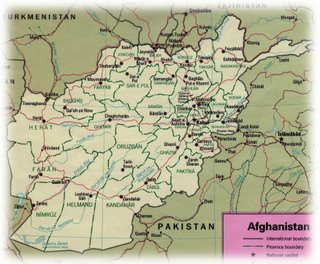In a leading article, the Daily Telegraph has announced the ending of multi-culturalism as the British government's official policy:
At his press briefing yesterday, the Prime Minister made it clear his Government's approach to cultural diversity had changed. He may have couched his position in careful language, but the conclusion was inescapable: integration, rather than multi-cultural separatism, is now official policy.
The Telegraph goes on to state that
Ministers are now clearly ready to embrace the argument that they have attacked for many years as insensitive, even bigoted: if Britain is to succeed in absorbing diverse peoples, ethnic minorities must accept the mores of their adopted country. Private religious observance should always be respected, but its practices cannot be permitted to contravene either civil law or the social rules that make community life workable.
It is probably too early for those of us, who have been arguing against multi-culturalism since the days of the
Honeyford controversy, to start celebrating. The Telegraph takes Blair's words at face value but it is entirely possible the prime minister is merely posturing for electoral advantage in the light of the findings of his latest focus group. Yet, the very fact that Blair can articulate views that were once the preserve of what the left called the "racist" right, is at the very least an encouraging sign. As I wrote
yesterday, the political climate is changing in our favour.
Neither Blair nor the Telegraph, however, spell out in detail either the exact nature of the problem or what is meant by "integration". However, if a problem is to be dealt with effectively, it must first be identified precisely. Within the UK, there has been relatively little difficulty in assimilating Jews, Hindus and any other religious grouping you care to name. The one religion to create problems through its refusal to integrate is Islam. The problem of Muslim integration is not one of veils; that particular controversy is no more than a convenient way to avoid debate over more serious problems.
In this context, by "integration" I mean an immigrant community being subject to the same laws of the land and their application as the indigenous population. The specific "integration" problems which the government needs to address in this respect are:
- Muslim death threats and civil disorder as a response to any perceived criticism of their faith;
- so-called "honour killings";
- forced marriages and the statutory rape which can be involved;
- domestic violence, especially, wife beating .
Additionally, the government needs to find a way to force the police to stop turning a blind eye to these issues and instead enforce the law as they would if any other section of the population was involved. When we see signs of that happening, we will know that government is serious about integration. Until then, judgement must be suspended.
It will not be easy. This government's previous fanatical devotion to multi-culturalism has spawned a huge industry of race relation advisers in central and local government. They will fight to defend their vast bureaucratic empires, the more so given that these individuals are probably utterly unemployable elsewhere. Moreover, multi-culturalism is the current Whitehall orthodoxy , something which is notoriously difficult to change. Before long, the counter-attack will come, no doubt headed by Trevor
Philips and the rest of the extremists at the Commission for Racial Equality. The government's response to that will be a reasonable indication of how serious ministers are about getting to grips with the problem.
In the meantime, the celebrations are on hold, but tonight I will be raising a glass to
Roger Scruton who, as editor of the Salisbury Review, led the intellectual battle against the evils of multi-culturalism.




